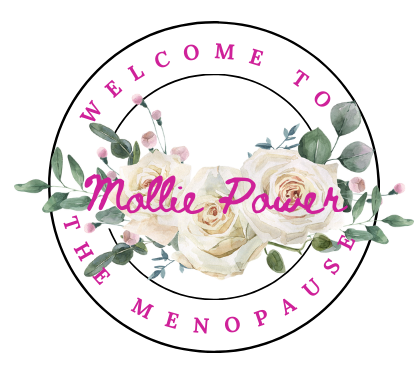
Menopause is more than just the ending of a biological cycle; it’s a profound shift that can stir a cocktail of emotions and inner turmoil. During this transformative period, a woman’s body becomes a complex battleground of hormonal fluctuations known to rattle the stability of her emotional well-being. But first, let’s clear the air: it’s not all doom and gloom. In my opinion, knowledge can translate into power, and understanding the intricacies of menopause is your first Armor against depression and mood disorders.
Now, what does this all mean for you? It means recognising that these hormonal ebbs and flows can manifest as mood swings, unpredictable emotions, and, sometimes, feelings of sadness or anxiety. But don’t worry too much about this being ‘abnormal.’ On the contrary, such responses are entirely normal and, more importantly, manageable. We’re going to dissect this further by exploring how you can foster holistic self-awareness to buffer these tides and maintain your sense of control.
When it comes to navigating menopause, embracing a holistic self-awareness approach is key. This isn’t just about acknowledging physical symptoms; it’s also about tuning in to your emotional landscape. What feelings are cropping up? How intense are they? What can they tell you about what your body and mind need? By regularly checking in with yourself, you become better equipped to take proactive steps towards emotional equilibrium. Choose something that resonates with you, whether that’s journaling your experiences, seeking peer support, or simply giving yourself permission to feel without judgment.
And, you’re going to find out about some tactics for resilience in the next section. These include essential self-care practices, nutritional advice, and embracing the power of the mind-body connection to reinforce your mental fortitude. It’s a journey, but remember, your first attempt doesn’t need to be your last. Adjust your approach down the road as you learn what helps you the most.
Fortifying Mind and Body: Tactics for Resilience
When it comes to facing the complexities of menopause, think of your mind and body as allies in your journey to emotional well-being. The tactics to build resilience are diverse, ranging from prioritising self-care to ensuring proper nutrition, all aimed at buffering against depression and mood swings.
For starters, holistic self-care is paramount. If you’re not yet familiar with holistic practices, you’re about to discover a realm of activities that cater to your overall health. Think mindfulness, consider yoga, or perhaps give meditation a try. These aren’t just buzzwords; they’re tested methods that many find helpful in creating a sense of calm and control during turbulent times.
When it comes to what’s on your plate, the connection between the foods you eat, and your mood is more significant than you might think. Eating a diet loaded with omega-3 fatty acids from fish, flaxseeds, and walnuts, and ensuring you’re getting plenty of antioxidants from fruits and vegetables, can have a profound impact. And don’t overlook the feel-good factor from foods rich in vitamins B and D, which can be mood-boosting.
Bringing cognitive-behavioural therapy (CBT) into the picture interacts directly with how you process thoughts and emotions. I’m here to tell you that strategies like CBT can be game changers in shifting negative thought patterns and giving you a fresh perspective on menopausal challenges. Meanwhile, simple relaxation techniques such as deep breathing exercises can help short-circuit stress responses and provide immediate relief.
In the next section, we’re going to unpack the importance of communication—why opening up about your menopause experience is invaluable and how it can provide not just relief, but a pathway to deeper connections and support.
Encouraging Openness: Fostering Supportive Communication
I’m going to show you why it’s essential to have open communication during menopause. It’s not just about having a chat; it’s about building a network that holds you up when you’re feeling down. The empowerment in vulnerability can unlock doors you never knew existed. It allows you to be honest with yourself and others about what you’re going through. And guess what? It often leads to deeper connections and a stronger support system.
I’m here to help you understand how to engage with that network. You’re going to find out about the benefits of involving friends, family members, and healthcare professionals in your journey. Every conversation can help lighten the emotional load often associated with menopause. Plus, it reinforces the fact that your experiences are valid and you’re certainly not alone.
Professional guidance is also key. Seeking help isn’t about admitting defeat; it’s about recognising your strength and taking control. A mental health professional or counsellor who specialises in menopause can provide tailored strategies and coping mechanisms. That’s going to include sessions that tackle specific challenges, offer support, and equip you with the tools you need to power through this phase of life.
The mind-body connection is powerful, and sometimes your body can help your mind to cope better. Practices such as cognitive-behavioural therapy (CBT) can be instrumental. They teach you to reframe negative thoughts and give you practical techniques to manage stress and depressive symptoms. You can always adjust your approach down the road, but starting these conversations opens the door to new possibilities.
Cementing Empowerment through Knowledge and Community

Knowledge is a formidable ally in your journey through menopause. When you understand the changes happening within your body, you’re better equipped to make choices that support your well-being. But this isn’t just about biology; it’s also about the emotional and psychological evolution you’re experiencing.
Grasping the ins and outs of menopause, from hormonal shifts to their effects on your mood, lends you a sense of control. It transforms uncertainty into clarity, fear into readiness. Combine this knowledge with strategies for overcoming depression and mood disorders, and you’re paving a path not just to withstand this transition, but to thrive through it.
Community can be a beacon of hope and solidarity. Connecting with women who share your experiences fosters a collective strength. It’s in these relationships that you can find laughter in the midst of challenge, encouragement in moments of doubt, and understanding when you need it the most. The community stands as a testament to the power of shared voices and the comfort of knowing you are never alone.
I really hope that this guide has shined a light on the tools and knowledge necessary for empowering yourself or the women in your life facing menopause. From prioritising self-care to nourishing your body, from speaking your truth to seeking professional advice, each step you take is a leap towards reclaiming control over your emotional health.
Remember, menopause is a passage, not a destination; it’s a continuing story of growth and adaptation. You are not alone on this journey. Our community is here to provide support and resources to help you embrace menopause with strength and positivity. Explore our welcometothemenopause.com for more expert insights, empowerment and a supportive network on this transformative journey.
✨ Your Story Matters! Share Your Experience 🌟
Dear [Your Community/Brand Name] family,
We’re all about sharing stories here, and we want to hear yours! After diving into our latest post, we’re eager to know how it resonated with you. Did you relate to a particular point? Maybe you have your unique take on the topic?
Let’s make this space a hub for diverse experiences. Drop a comment below and let’s spark a conversation. Your voice matters, and we can’t wait to read your insights!
Cheers to sharing and connecting! 🌈✨
